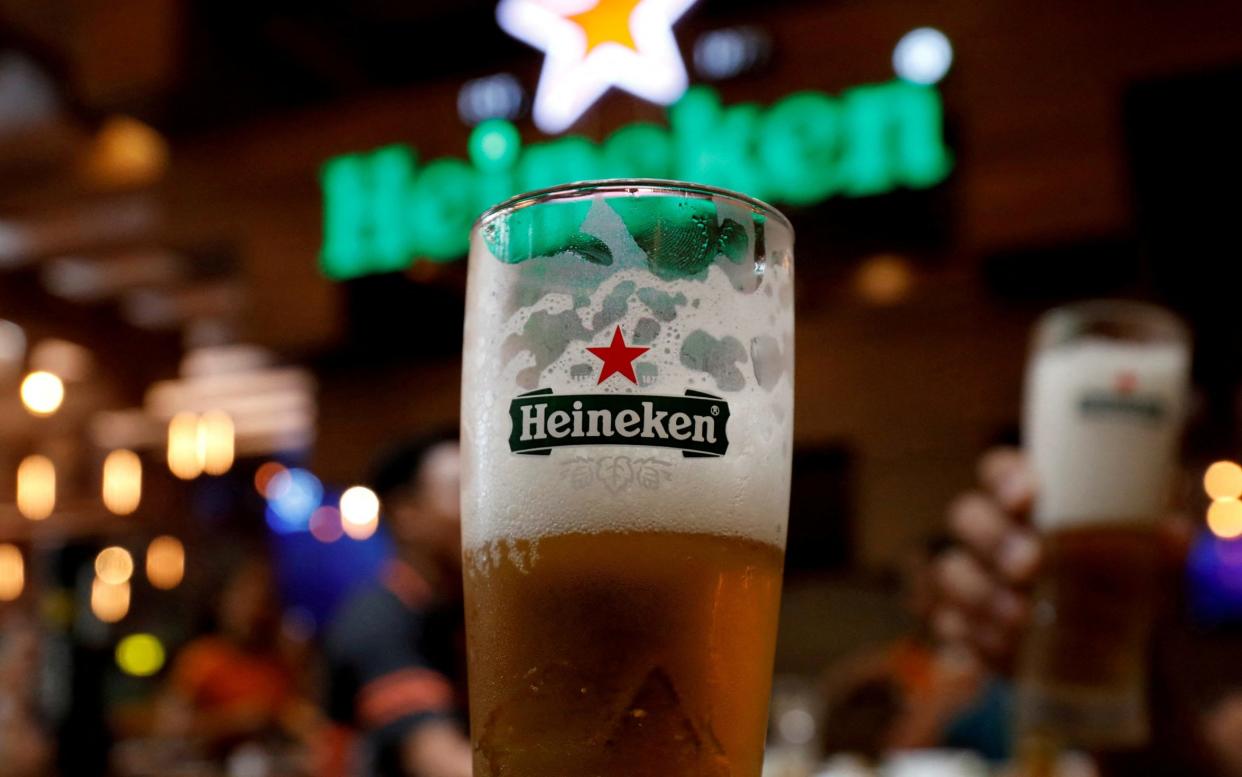Beer prices up 25pc since 2019 – and it’s putting drinkers off, says Heineken

Higher beer prices are putting off drinkers, Heineken has said.
Heineken, the world’s second-largest brewer, has reported a drop in sales after raising its prices in Britain by almost 10pc.
The Dutch brewer, which owns brands including Tiger, Foster’s, Birra Moretti and Sol, sold 4.2pc less beer in the three months to the end of September than it did in the same period last year.
It coincided with a jump in prices and Heineken blamed “inflation-led” increases for the drop in sales. The company raised prices in the UK by a high single digit percentage in the three months to the end of September.
The price of beer has risen rapidly since the pandemic, with brewers blaming spiralling costs of everything from energy to wages.
The average cost of a pint of lager has risen from £3.67 in January 2019 to £4.62 last month, according to the Office for National Statistics – a 25pc jump.
The price for four cans of Foster’s lager has risen by almost 18pc over the past year to reach £4.60, according to Trolley.co.uk, which tracks supermarket prices. A pack of Birra Moretti has risen by around 16pc over the same period.
At the same time as putting up prices, brewers have been making their beers weaker. Foster’s lager has weakened from 4pc alcohol to 3.7pc this year.
Despite this, the price of a keg of Foster’s lager sold to the pub trade went up by around 16pc in January. Heineken did not comment at the time.
Beers are getting weaker to help brewers manage costs. Weakening Foster’s saves Heineken 3p of tax per can as levies are charged on the percentage of alcohol in beers.
Shepherd Neame and Greene King have also weakened their beers. Greene King said it had changed the strength to mitigate “significantly increased” costs.
Heineken chief executive Dolf van den Brink suggested that the recent rapid climb in beer prices could be coming to an end, saying that “inflation-led pricing is tapering”.
The brewer’s sales fell in every region apart from the Americas, where there was strong demand in Brazil and Mexico.
Mr van den Brink said: “We observe a slowdown of consumer demand in various markets facing challenging macroeconomic conditions.”
He added that the wetter weather across Europe in July and August had also dampened demand.
Despite falling sales, Heineken’s revenues rose 4.5pc thanks to higher prices. In the UK, revenues were largely stable.
Mr van den Brink said he expected a “gradual improvement in our business performance, although somewhat slower than our ambition”.
He added: “In half of our markets, volume trends are improving. Similarly in just over half of our markets, we are gaining or holding market share.”
Shares in the company rose just 0.66pc on the update.

 Yahoo News
Yahoo News 
